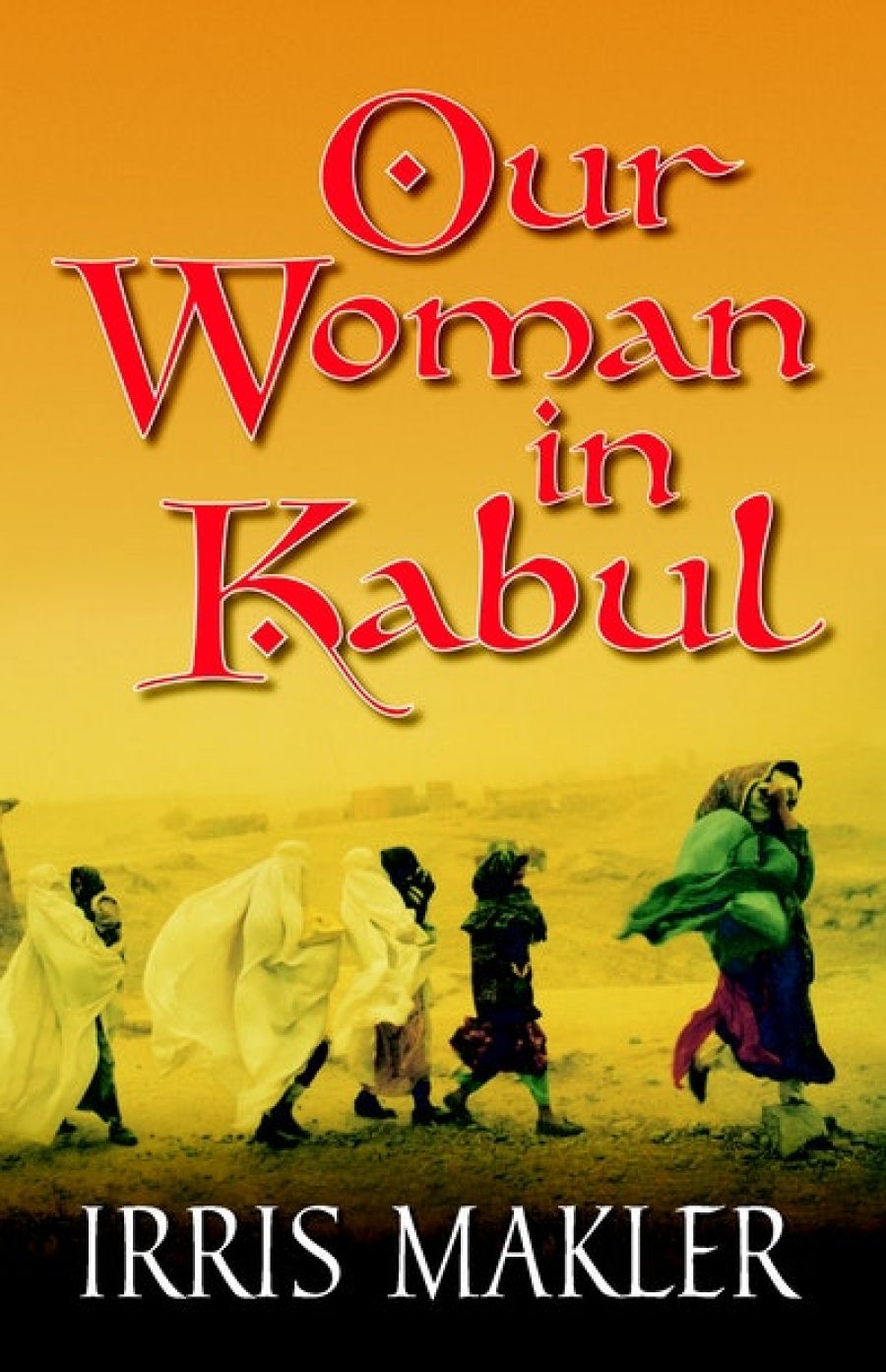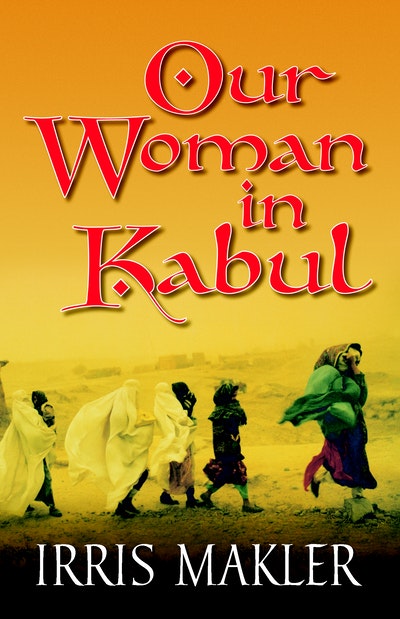
- Free Article: No
- Contents Category: Journalism
- Review Article: Yes
- Article Title: Irony upon Irony
- Online Only: No
- Custom Highlight Text:
On September 11, 2001, Australian journalist Irris Makler was working as a freelance correspondent in Moscow. The terrorist attacks in New York and Washington focused attention on Afghanistan, and Makler was among the first journalists to make their way into the strife-torn country via its northern neighbour, Tajikistan.
Our Woman in Kabul documents the US invasion of Afghanistan, the routing of the Taliban and the hunt for Osama bin Laden. Makler’s story covers the circumstances of daily life as a female correspondent in a country where women are virtually invisible, the discomforts and challenges of being part of a media feeding frenzy in a place without the infrastructure to support it, and the larger drama of a civil war suddenly escalating into an international conflict. During two decades of fighting, Afghanistan had lost an estimated ten per cent of its population to war, starvation and lack of medical resources. For those of us to whom the name bin Laden seemed to rise like a demonic projection from the underside of the US imagination, Makler’s book provides the background to an event that was formulating its inevitable trajectory in the barren mountains of Afghanistan.
- Book 1 Title: Our Woman in Kabul
- Book 1 Biblio: Bantam, $32.95 pb, 365 pp
- Book 1 Cover Small (400 x 600):

- Book 1 Cover (800 x 1200):

All the contradictions of modern conflict coalesce here: a mountain fortress of a country – incomprehensible to the West – where Muslim fundamentalists were supported by the US during the Soviet occupation and went on to create one of the most oppressive régimes in the world and to provide a haven for terrorists. Afghanistan is a case study in the risks of turning a blind eye, leaving intractable problems to fester until they erupt with unimagined repercussions.
I read this book with a growing sense of the fissures that exist between the naïve notions of good and evil espoused by the US government and the complex network of tribal affiliations and opportunism that underpins the conflict in Afghanistan. Makler reveals these layers and complexities, the habitual defections of the various factions, the distinctions made by the Northern Alliance fighters between the Afghani Taliban and the ‘foreigners’ and ‘Arabs’ who comprise a substantial part of the Taliban army. Among the strange trajectories of those engaged in the war is the story of a fifty-year-old general trained in Russia who fights in the Afghan communist army against the Mujaheddin, joins the Mujaheddin factional wars after the defeat of the Soviets, and currently fights the Taliban with the assistance of US air strikes and ammunition supplied by the Russians.
At one level, the book reads like a girl’s own adventure – plucky female journalist surrounded by spunky cameramen and war correspondents, crossing the Hindu Kush in a jeep with dodgy brakes, negotiating unspeakable lavatories, male-only marketplaces and unexploded bombs in kitchens. There is also a sense of the addictive element of life lived on the edge of an unfolding drama in which one is neither innocent bystander nor combatant, and in which dying can be as arbitrary as staying alive.
For much of the story, Makler and her fellow journalists are holed up with the Northern Alliance in the small town of Khoja Bahauddin, waiting for the US air strikes to weaken Taliban strongholds. This provides Makler with an opportunity to interview women and, inadvertently, to put one of the most courageous and outspoken of them in danger. An interview with health worker Farahnaz Nazir angers the local Northern Alliance warlord, who threatens to have her killed.
The oppression of women, institutionalised to insane levels by the Taliban, is culturally embedded throughout Afghanistan, giving rise to bizarre forms of masculine compensation, war being only one of them. Makler’s access to the hidden dimensions of Afghan women – the refugee mother of ten barred by law from working, her husband killed by the Taliban; the doctor’s wife suffering the humiliation of her husband’s acquiring a young and beautiful second wife; the hunt through Kabul for a clandestine beauty salon – reveals the courage and resilience of these invisible lives.
Makler has a sharp eye for the surreal. She gives a beguiling picture of soldiers in the trenches applying mascara while the shells fly, believing that it will protect them from the evil eye, and imagines the advertising campaign: Max Factor – no Mujahed would be seen dead in anything else.
In her account of the contradictions of the war and of the historical circumstances leading to the conflict, Makler reveals the horrors that ideologies and political expediencies have inflicted on ordinary people, particularly women and children. Russian and US interventions and withdrawals have cemented the law of the gun, allowing Afghanistan’s educated élite to be driven out or killed and tribal conflicts to become entrenched. The ensuing disorder has been embraced and manipulated by the warlords, and always the civilian population suffers unspeakably. A local states: ‘Every time a new government comes into power, the local strongmen change their disguises. They face up to no responsibility for the misfortunes their wars cause to the civilians.’
Makler is not prescriptive, but the book raises the question of how to think about these conflicts from the privileged insularity of our comfortable lives. It is chilling to read Our Woman in Kabul in the aftermath of an eerily similar war, as another phase in ‘the war against terror’ is played out, and irony accumulates upon irony.
This is a book for the times, an extremely readable account that clarifies the circumstances of the Afghan war, reveals the dreadful price paid by ordinary people and leaves this reader at least convinced that we truly live in a global culture where the displacement and suffering of apparently forgotten people is something for which we must all take responsibility, whether reluctantly or willingly.


Comments powered by CComment